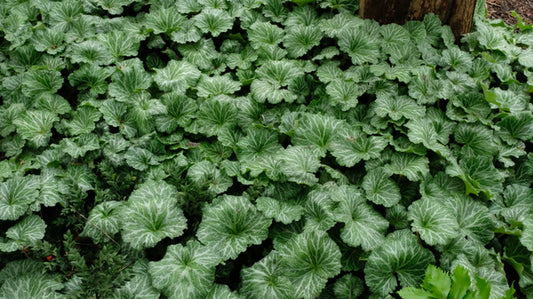The name saxifraga comes from the Latin for "stone-breaker" as certain species live on rocks and send their roots down into the fissures, causing them to crack open even more.
-
Saxifraga stolonifera 'Nezu Jinja'
Item #: 11494
Zones: 3a to 9b
Dormancy: Evergreen
Height: 5" tall
Culture: Part Sun to Shade
Origin: Eastern Asia
Pot Size: 3.5" pot (24 fl. oz/0.7 L)
Regular price $21.00Regular priceUnit price per
More Information About Saxifraga
There are a number of different groups in the genus Saxifraga, from difficult-to-grow alpine species to easy-to-grow woodland gems. We've successfully killed several of the alpine species, so guess what is left? Saxifraga are native around the world and while they vary greatly in leaf pattern, they are are all similar in habit...mostly forming low-growing rosettes.
Saxifraga (Strawberry Begonia) Growing Conditions
Needless to say, our saxifraga selections prefer woodland conditions; partial shade, and well-draining but evenly moist rich soil. Some saxifraga are able to spread with the aid of numerous attractive stolons which are above ground stems that grow horizontally along the ground sprouting new roots and shoots.
Usage in the Garden
The genus Saxifraga is a close cousin to other ornamental perennials including mukdenia, boykinia, bergenia, and astilboides. The Japanese eat the leaves of S. stolonifera, fresh or cooked.


